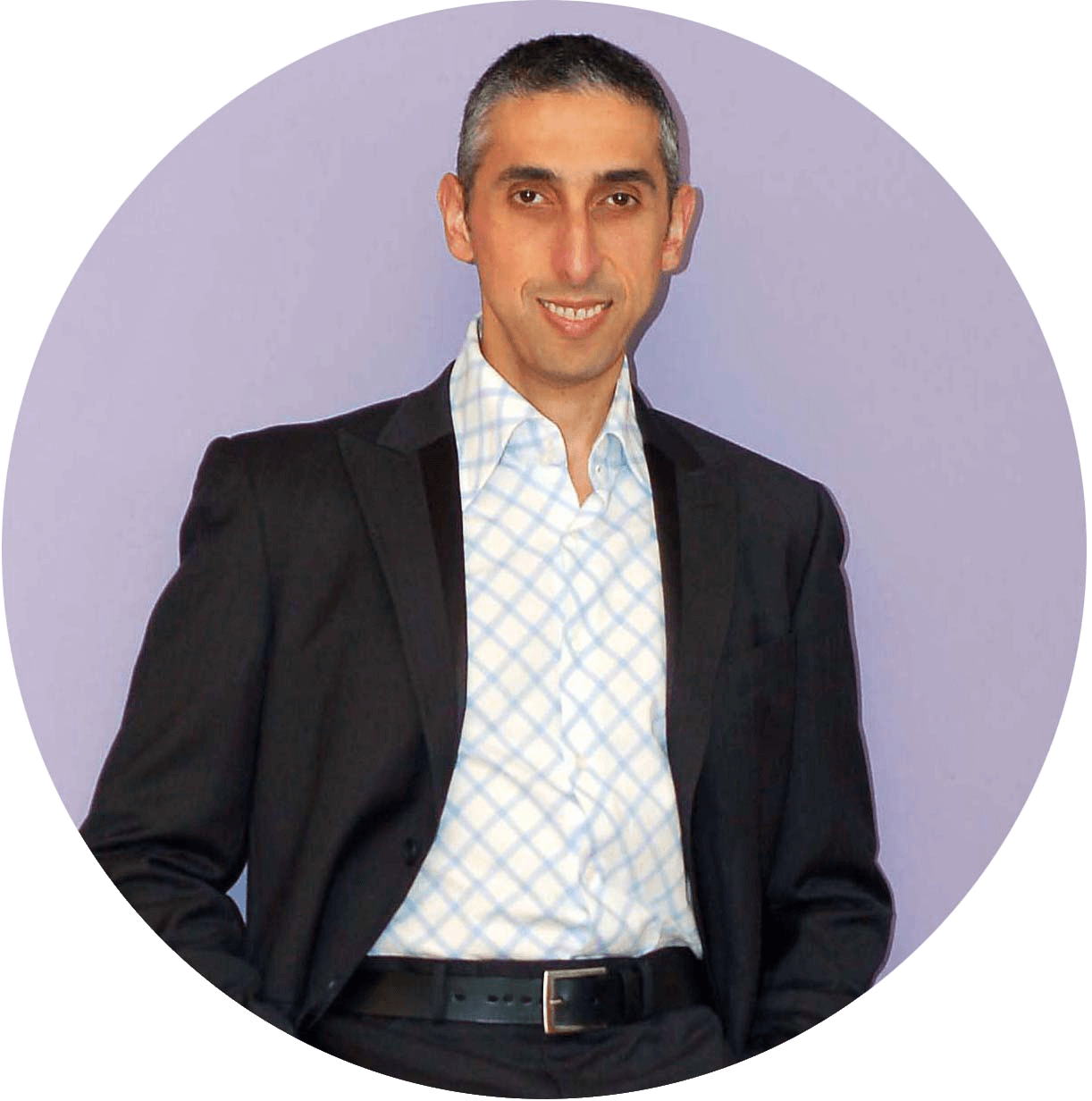What Constitutes Talent?
“Nobody ever takes note of [my advice] because it’s not the answer they wanted to hear. What they want to hear is: ‘Here’s how you get an agent’ and ‘Here’s how you write a script.’ But I always say, ‘Be so good they can’t ignore you.” — Steve Martin
I still recall my final year of university, having written my final paper on the achievements of a prominent figure in the fashion industry by the name of Giorgio Armani.
I recall a passage from a beautifully bound book written in Italian that was loaned to me. My understanding of the language was limited, so I had it translated. Among the many passages, one stood out that caught my attention. It read: “He was so talented that even the blind were aware of him.”
It was a fitting description for a person who contributed a great deal to fashion design. That passage has stuck with me for seventeen years as a measure of an individual’s influence on the world.
Someone who has explored talent and success is author Cal Newport. In his book, So Good They Can’t Ignore You, he argues that we gain skills through deliberate practice, which results in gaining career capital. This is a more reliable measure of success than pursuing our passions, he states.
He outlines cases of people who pursued their passions, yet did not achieve business success. According to Newport, they fell short of possessing the business skills to bring their product or service to market. He proposes that passion alone is not enough to guarantee success—there must be supportive foundations to make sure the venture is commercially practical.
Author Sean Patrick writes in Awakening Your Inner Genius: “What is generally recognized as “great talent” is, in almost all cases, nothing more than the outward manifestations of an unwavering dedication to a process.”
In a similar frame, it was the comedy genius Steve Martin who coined the phrase: “Be so good they can’t ignore you.” He was delivering advice to budding actors, yet struck at something more relevant than technical guidance—talent.
Martin’s counsel to become the best at what you do is echoed in the sentiments that when you are great, the world has no choice but to recognise your genius.
This supports my opening quote from the book in Italian that greatness is recognised by others.
One need look no further than the rising stars of today’s musicians to see how many go on to establish successful musical careers. I have been fortunate to follow the rise of Bob Dylan and his impact on music. Dylan fused poetry and music and in doing so created a new genre, thus defining music as lyrical poetry.
The phrase: “cream rises to the top” is used to show that a great idea or person cannot go unnoticed, much the same way cream rises to the surface in coffee or tea.
As a new idea gives birth, reviewers and critics praise it as exciting and fresh. Michael Jordan’s masterful and athletic display on the court earned him the privilege as one of the most talked about basketball players of our time. He is fixed in the minds of sports enthusiasts alike as a benchmark upon which other athletes are measured nowadays. His persistence, effort and dedication earned Jordan the credit as one of the most respected sportsmen of our time.
The American academic and psychologist Angela Duckworth writes in Grit: The Power of Passion and Perseverance that talent and skill are not enough to ensure success: “Without effort, your talent is nothing more than your unmet potential. Without effort, your skill is nothing more than what you could have done but didn’t. With effort, talent becomes skill and, at the very same time, effort makes skill productive.”
The Quest For Constant Improvement
“What the amateur calls genius, the professional calls practice.”— Robin Sharma
It is well known that athletes have an indomitable will to succeed. The countless hours of training and the accompanying discipline, demands they be their best on competition day.
In a similar vein, Olympic athletes are another breed of super-athlete whose training spans decades to compete at one event. Often, their training hinges on a performance spanning no less than a ten-second event. They understand the gap that separates success from failure. As unforgiving as it may seem, gold medals are seldom awarded for second place.
Which leads us to the question, how can you be inspired by the greatness of others?
Well, for starters embrace the advice of Professor of Psychology and author of Mindset: The New Psychology of Success Carol Dweck. She proposes we make steady improvements in our chosen field, by developing a growth mindset instead of a fixed mindset. As you divert your attention away from attaining the prize, you make steady and gradual improvements, which lead to your intended goals.
For example, if you are a musician, focus on continuous deliberate practice by honing your musical skills. Deliberate practice is characterised by spending quality time absorbed in your respective performance while noting key areas that require improvement.
A golfer who lacks strength at his putting game, devotes focussed attention perfecting his technique, with the purpose of making continuous improvements.
This advice is repeated by sports psychologist Stan Beecham who outlines in Elite Minds: Creating the Competitive Advantage: “The fact of the matter is that people who have a strong desire to win, to be the best at what they do, are more likely to reach their full potential than someone who says, “I don’t care if I win or lose, I just want to get better.”
Your goal should be building on your performance and not investing time with end results during the development phase. Appreciate the compound effect, which states the rewards will materialise once you have attained a level of mastery.
Allow the practice to become your companion. Seek experts, mentors, skilled technicians and those who can help you improve. Small improvements over time combine to yield surprising results.
Complete Dedication
“If you always put limits on everything you do, physical or anything else, it will spread into your work and into your life. There are no limits. There are only plateaus, and you must not stay there, you must go beyond them.”— Bruce Lee
I might state the obvious, yet many athletes who compete on an international level are equal to their opponents in terms of skill and dedication. What differentiates the best from the best? Not talent since it is assumed at that level of competition.
The greatest performing athletes are committed in several ways: a burning commitment to succeed, proper sleep and recovery, sound nutrition, mental and emotional resilience, courage and determination to name a few key attributes. Whilst these characteristics are immeasurable, incorporated over time they return a resounding level of world-class performance.
“The desire to win, to be the best in a given moment of time, is a concept that makes many of us uncomfortable. The fact of the matter is, the desire or intention to win will bring out the best in you. You should want to win because it will lead you to your best, not because you will triumph over another,” states Stan Beecham.
As is often the case, you may spend countless hours on your pursuit, making necessary sacrifices and still not hit upon success. Remember, life has a rhythm of its own, which means timing is everything. You might need to gain new skills in certain areas to bring your gifts to the world. Be patient and bide your time — use it wisely to focus on deliberate practice, whether you’re a writer, a musician or the like.
Give yourself to your goal and embody it at a deep level so it consumes you day and night. Let it be the last thing you think about at night and the first thing on your mind in the morning.
The quest to be so insanely good is expressed in the advice by behavioural and sports psychologists to be obsessive about your work.
Dream about it — let it become a representation of your character because we want you to be so insanely good they can’t ignore you.

Are You Ready to Transform Your Life with Confidence?
Are you ready to transform your life and unlock your potential? Start your journey with me today! My Life Coaching Program has empowered many to achieve lasting change. Schedule your FREE 30-minute consultation now and take the first step towards a brighter, more confident you.
Tony Fahkry
Expert Life Coach















